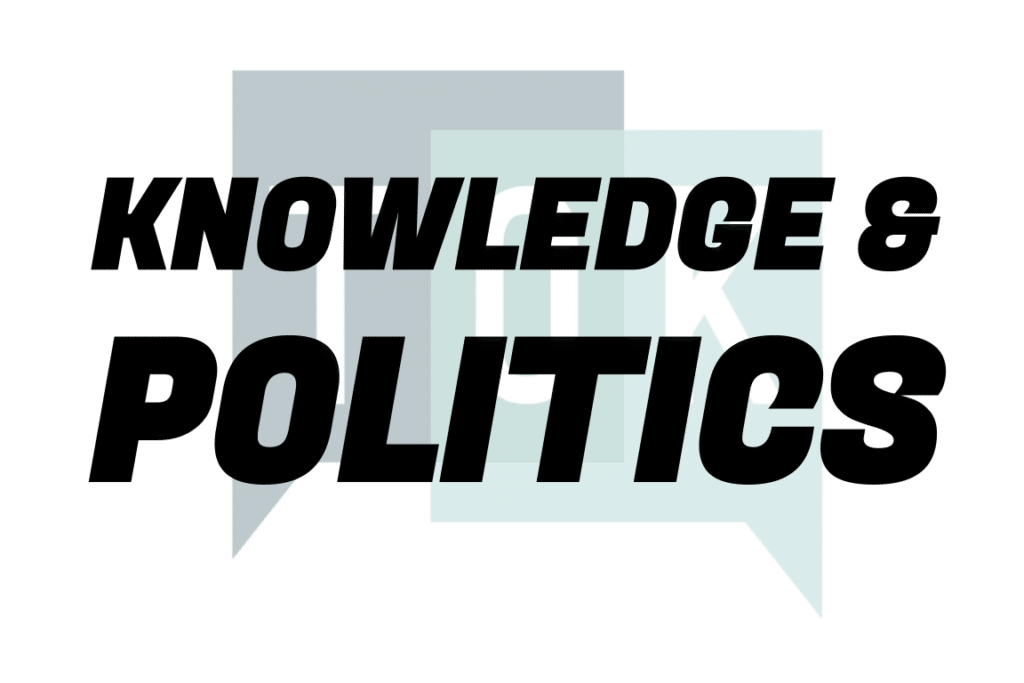
Welcome to the knowledge & politics section of the site. This page will help you to take ownership of politics via a quick overview, and four padlets that offer you quotes, knowledge questions, real-world issues, and key thinkers relating to this optional theme.
You can use this content both to understand this component of TOK, and support discussions and arguments that you offer in your essay and exhibition.
Knowledge & politics: a quick overview
The optional theme of knowledge & politics explores the relationship between knowledge, power, and governance. It delves into how political forces shape the acquisition, dissemination, and manipulation of knowledge, and vice versa. As we navigate this theme, we encounter several key concepts.
Power emerges as a central concept, underscoring the influence that political actors exert over the creation and dissemination of knowledge. Perspective plays a crucial role as it highlights how political ideologies and interests can shape our understanding of truth and reality. The concept of responsibility raises questions about the ethical dimensions of knowledge production and dissemination within political contexts.
Two influential thinkers in the realm of knowledge and politics are Simone de Beauvoir and Edward Said. Simone de Beauvoir, a French existentialist philosopher and feminist, explored the intersection of knowledge, power, and gender, shedding light on the role of patriarchy in shaping social and political structures.
Edward Said, a Palestinian-American literary theorist, examined how knowledge and representation were used as instruments of colonialism and imperialism in his seminal work, “Orientalism.”
Contemporary issues related to knowledge and politics encompass a wide range of topics. Discussions on disinformation and misinformation highlight the manipulation of information for political gain, raising questions about media literacy and the role of responsible journalism. Additionally, debates surrounding academic freedom and censorship underscore the challenges faced by scholars and researchers whose work may challenge political authorities.
Exploring knowledge & politics requires students to critically analyze the role of knowledge in political decision-making, appreciate diverse perspectives, and understand the ethical considerations inherent in the use and abuse of knowledge within political contexts. It emphasizes the importance of responsible information consumption, critical thinking, and informed civic engagement.
1 QUOTES Who said “Under every stone lurks a politician”?
Explore these quotes on politics by a wide range of different thinkers. Which quotes are the most and least insightful? How they challenge our assumptions about politics? What do they reveal about links between politics and other aspects of the TOK course?
2 KNOWLEDGE QUESTIONS Do political leaders need to be knowledgeable?
Identifying and exploring knowledge questions (KQs) is at the heart of TOK, prompting us to reflect on our knowledge, evaluate whether it’s be based on a flawed or incomplete assumptions, and provide us with a focus point to improve our understanding of the world.
3 REAL-WORLD ISSUES Can Socratic principles reduce political polarization?
These examples will help you to understand how TOK ideas manifest in the real-world, take ownership of politics, link TOK to the latest global issues, and become an authentic critical thinker. They will also help you to justify and explore the discussions you offer in your essay and exhibition.
4 KEY THINKERS Why did Chinua Achebe lose faith with political reformers?
The thinkers in this padlet will help you to consolidate your understanding of politics, and challenge your assumptions about the world. You can also draw on their ideas to support your essay and exhibition discussions, and add depth and authority to the claims you make about knowledge.

Subscribe to the free TOK newsletter!
Subscribe to our free newsletter, and collect fantastic examples to help you understand the key TOK ideas, support your essay and exhibition, and make you an authentic critical thinker.
You’ll encounter some of the most important thinkers from the past and the present, go beyond the headlines of contemporary events and issues around the globe, and see how TOK concepts manifest in the real-world. Subscribe HERE!